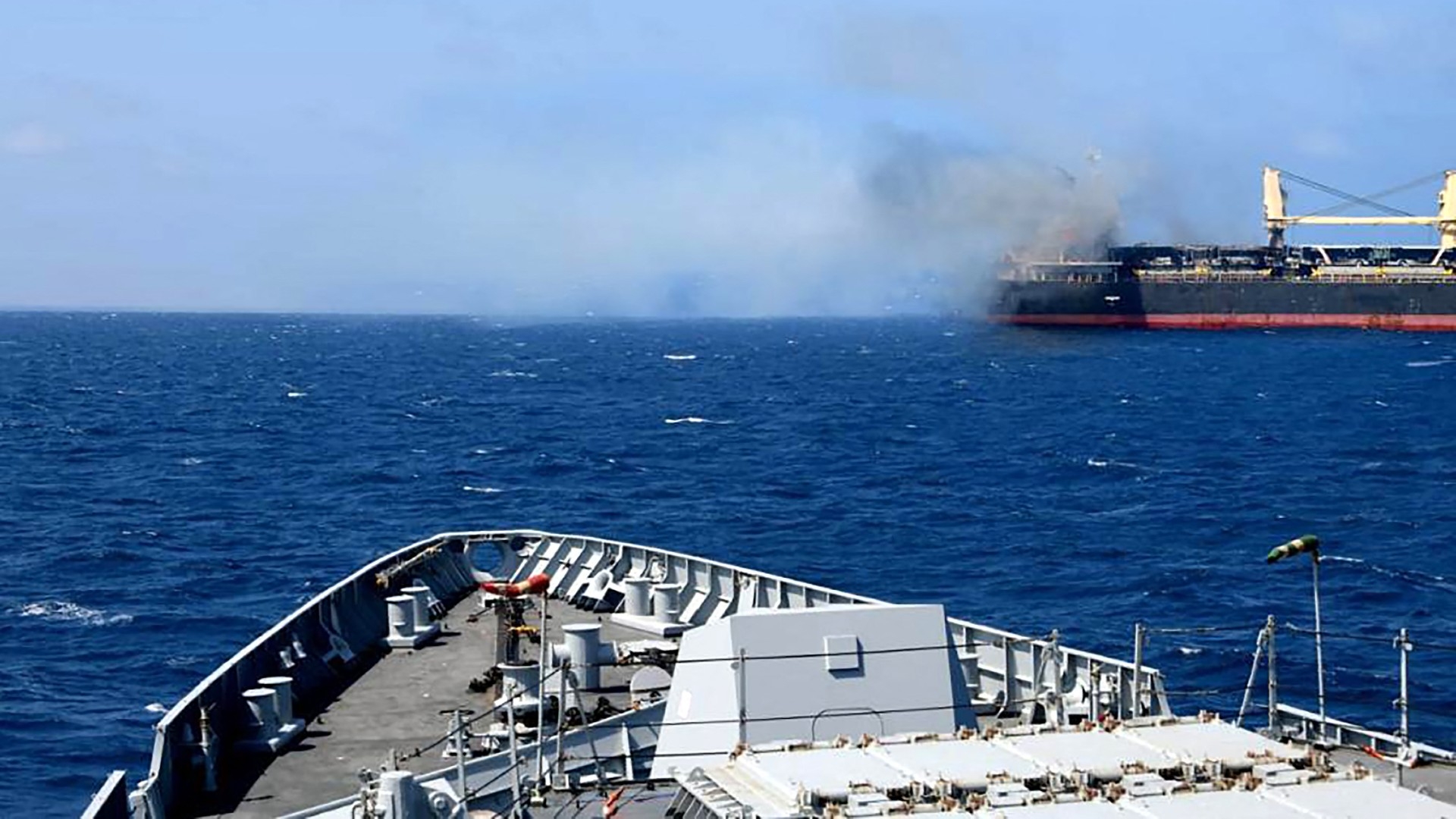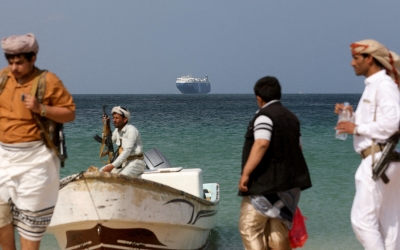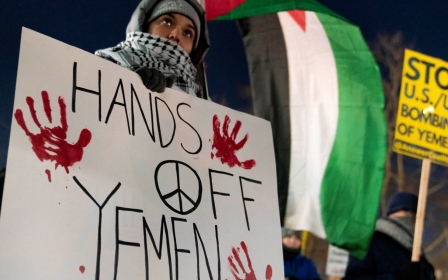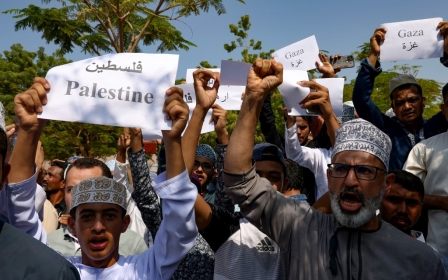Yemen's Houthis attacked nearly 30 ships in first five months of the year

Yemen’s Houthi movement attacked 28 vessels in the Red Sea in the first five months of the year, according to a list compiled by the International Maritime Organisation (IMO) and seen by Middle East Eye.
The IMO, the United Nations agency responsible for regulating maritime transport, collected information on attacks on merchant and commercial vessels between 10 January and 7 June.
In a letter seen by MEE, the list of attacks was sent by UN Secretary General Antonio Guterres to the president of the UN Security Council on 7 June, as part of a Security Council resolution requesting regular reports on Houthi attacks.
The 28 vessels struck included bulk carriers, tankers, container ships, cargo ships and crude oil tankers.
Nine of the vessels were Marshall Island-flagged and three were US-flagged. Others were from Malta, Barbados, Panama, Belize, Greece, Palau, Liberia, Singapore and Portugal.
New MEE newsletter: Jerusalem Dispatch
Sign up to get the latest insights and analysis on Israel-Palestine, alongside Turkey Unpacked and other MEE newsletters
The incidents mostly took place in the Gulf of Aden and the southern Red Sea, while one attack occurred in the Indian Ocean.
The list described all the attacks as having been carried out by uncrewed aerial devices. Most of the incidents resulted in no injuries or significant damage, often causing explosions and fires nearby.
A notable exception was an attack on Barbados-flagged True Confidence on 6 March, which killed three crew members and wounded four others. The crew were rescued from their life raft by a naval vessel.
In an attack on the Belize-flagged Rubymar cargo ship on 19 February, two drone strikes caused the crew to abandon the ship. All crew members were rescued by another ship.
Another double drone strike, on the Palau-flagged Islander vessel on 22 February, wounded a seaman who was struck by fragments on his ankle.
Between 6 and 7 April, the Marshall Island-flagged Hope Island was attacked with three separate missile attacks. Two of the missiles hit the water, while the other was intercepted by a warship near the vessel.
While the attacks were frequent during the first four months of the year, there was only one documented attack in May.
The information on the strikes were sourced from flagged states, coastal states, member states of the IMO, ship owners and regional organisations.
All of the strikes identified by the UN were subsequently confirmed by the Houthis in statements.
The Iran-aligned group has said its attacks are targeted at ships linked to Israel, and are an act of resistance to support Palestinians in Gaza under Israeli bombardment.
The attacks began on 19 November, when the Houthis seized the Galaxy Leader vehicle carrier in the Red Sea off the coast of Hodeidah.
The ship is British-owned and Japanese-operated. According to public shipping databases, its ownership is linked to Ray Car Carriers, founded by Israeli tycoon Abraham "Rami" Ungar.
Twenty-five of the vessel's crew members have been detained on board since November.
Yemenis from across the country have flocked to see the seized vessel, which has now become a tourist attraction in the coastal village of al-Salif.
"The Israelis have flattened many neighbourhoods in Gaza and killed thousands of people. If Israel can give life to those it murdered and reconstruct Gaza, then this ship should be allowed to return to its Israeli owners," Mohammed, one of those tourists, told MEE from aboard the ship in December.
In February, the US and UK began launching air strikes on Yemen in response to the Houthi attacks on ships.
Middle East Eye delivers independent and unrivalled coverage and analysis of the Middle East, North Africa and beyond. To learn more about republishing this content and the associated fees, please fill out this form. More about MEE can be found here.





